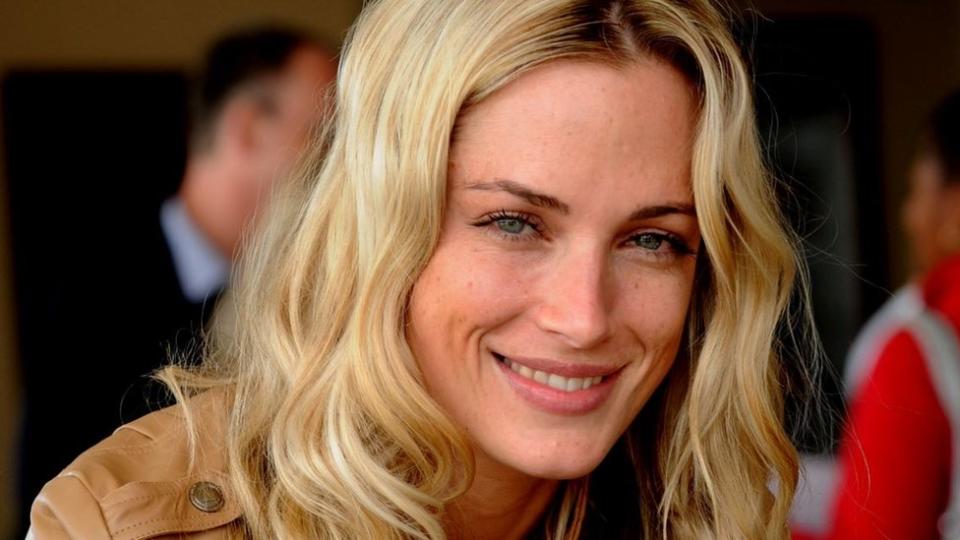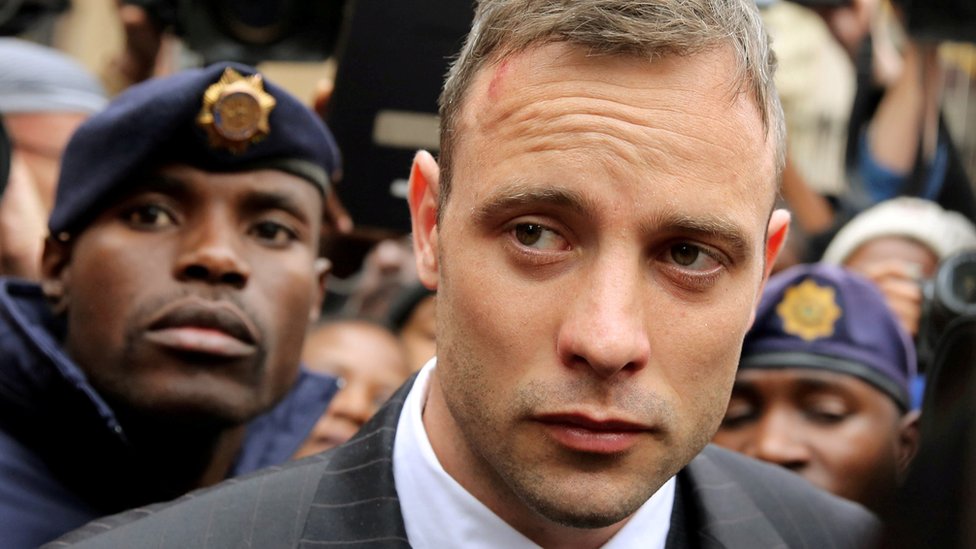Ex-Paralympian Oscar Pistorius is to be freed on parole from a South African jail, nearly 11 years after murdering his girlfriend Reeva Steenkamp.
He shot her multiple times through a bathroom door in 2013, later saying he had mistaken her for a burglar.
Pistorius, now 37, was eventually convicted of murder in 2015 after an appeal court overturned an earlier verdict of culpable homicide.
He will live under strict conditions until his sentence expires in 2029.
Under South African law, all offenders are entitled to be considered for parole once they have served half their total sentence, which for Pistorius was finally set in 2017 at 13 years and five months.
Reeva Steenkamp’s mother, June Steenkamp, said in a statement: “We have always known that parole is part of the South African legal system, and we have always said that the law must take its course.”
“Oscar Pistorius’s release on parole, subject to certain conditions, has affirmed Barry and my belief in the South African justice system,” she said, referring to her late husband.
“The conditions imposed by the parole board, which includes anger management courses and programs on gender-based violence, send out a clear message that gender based violence is taken seriously.”
“Has there been justice for Reeva?” she asked. “Has Oscar served enough time? There can never be justice if your loved one is never coming back, and no amount of time served will bring Reeva back. We, who remain behind, are the ones serving a life sentence.”
She added: “My only desire is that I will be allowed to live my last years in peace with my focus remaining on the Reeva Rebecca Steenkamp Foundation, to continue Reeva’s legacy.”
Pistorius has been in prison since October 2014, when he was first convicted.
His lower legs were amputated when he was less than a year old. Pistorius subsequently relied on prosthetics and became a world-renowned athlete known as the “blade runner”.
He had a successful career on the track, first at the Paralympics, winning multiple golds, and then cementing his reputation after competing against non-disabled athletes at the London Olympics in 2012. The murder of Ms Steenkamp just six months later, and the subsequent trials, dominated headlines around the world.
South Africa’s department of correctional services said that despite his high public profile, the former star will be treated like anyone else on parole.
This means that he will be confined to his home for certain hours of the day and he is banned from drinking alcohol. He is also not permitted to speak to the media.

Ms Steenkamp, who was 29 when she died, was a law graduate and successful model who also worked as a TV presenter and appeared in a reality show called Tropika Island of Treasure.
She had planned to start a law firm to help abused women after graduating.
Ms Steenkamp was three months into her relationship with Pistorius when he fired four shots with a pistol through the door of a toilet cubicle at his house in Pretoria in the early hours of 14 February 2013.
She died almost instantly.
The state charged Pistorius with murder but he was convicted in 2014 of the lesser offence of culpable homicide, or manslaughter.
The following year, judges at the Supreme Court of Appeal changed his conviction to murder, saying that his version of events was inconsistent and improbable and that he had “fired without having a rational or genuine fear that his life was in danger”.


